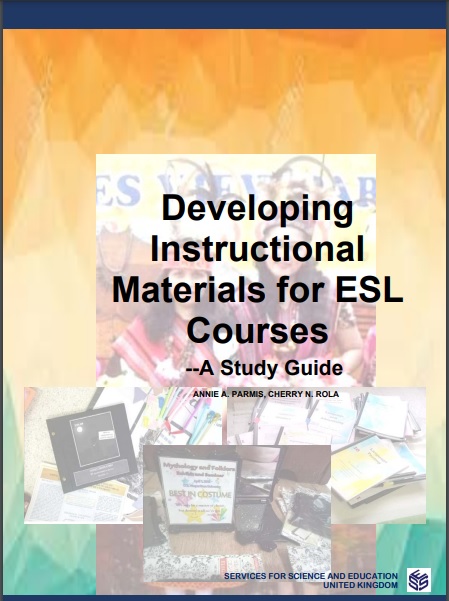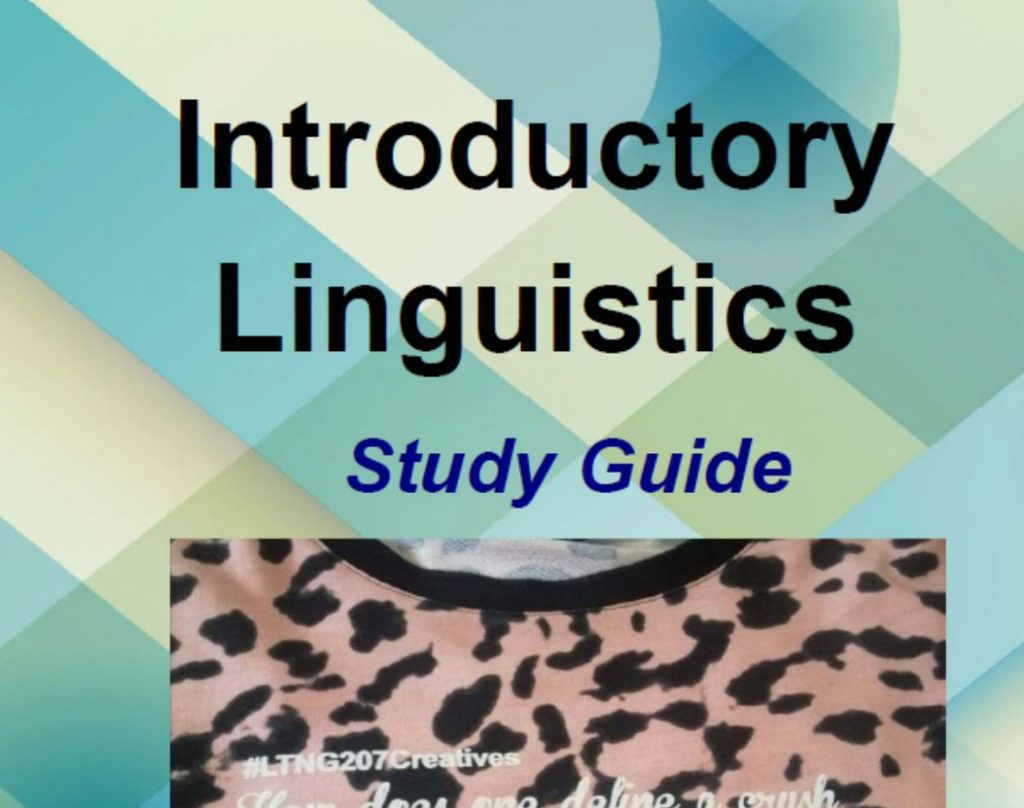Developing Instructional Materials for ESL Courses: A Study Guide
In a teaching-learning situation, instructional materials can be authentic or real objects used as alternative channels of communication to help the teachers concretize some abstractions so they can convey vivid information to learners. Furthermore, instructional materials can define the goals, objectives, approaches, methods, strategies, and techniques of the syllabus as well as the roles of the teachers and the learners (Wright, 1987) with reference to the learning domains (cognitive, psychomotor, and affective). The rationale behind having instructional materials is that they serve as a resource for presentation, activities, stimulation, and ideas for classroom learning (Cunningsworth, 1995) as well as a platform to induce or enhance creativity. Meanwhile, Kurt (2017) defines instructional design as the creation of instructional materials, modules, or lessons. It can also be a technology to develop the learners’ experiences as well as to promote the acquisition of specific knowledge and needed skills for a certain degree program. Factors in designing instructional materials include the following: learner, context, resources and facilities, personal confidence and competence, copyright compliance, and time ((Malley, 1998). Five (5) of the most popular instructional design models are the ADDIE Model, Merrill’s Principles of Instruction, Gagne’s Events of Instructions, Bloom’s Taxonomy, and Kemp Instructional Design Model. Digital learning terms include 21st Century skills, App flow, Asynchronous learning, Synchronous learning, Blended learning, among others. The exercises call for further discussions and application on the learning domains (cognitive, psychomotor, and affective); sample printed materials (flyer, leaflet, pamphlet, and brochure); factors in designing instructional materials; and design creatives. Assessment requires the students to submit a compilation of the different Projected and Non-projected instructional materials.


![Normative Framework in the Organization – Statutes and Regulation of Asilo de Infância Desvalida da Horta [Asylum for the Disadvantaged Childhood of Horta] in the Monarchy and the 1st Republic](https://scholarpublishing.org/sse/wp-content/uploads/2022/03/Untitled-42.jpg)
